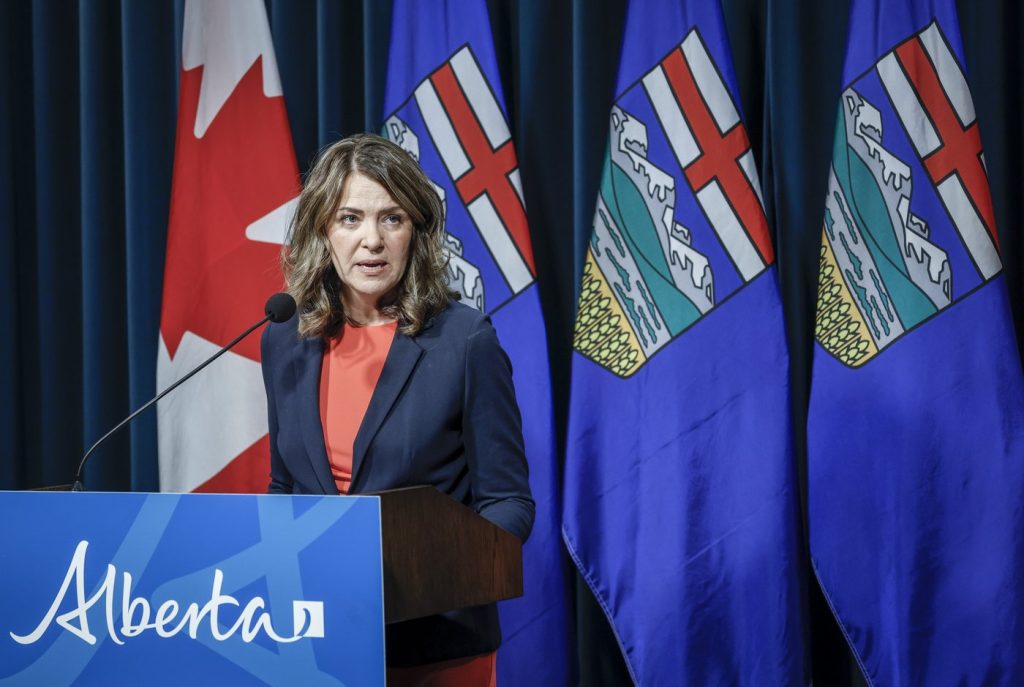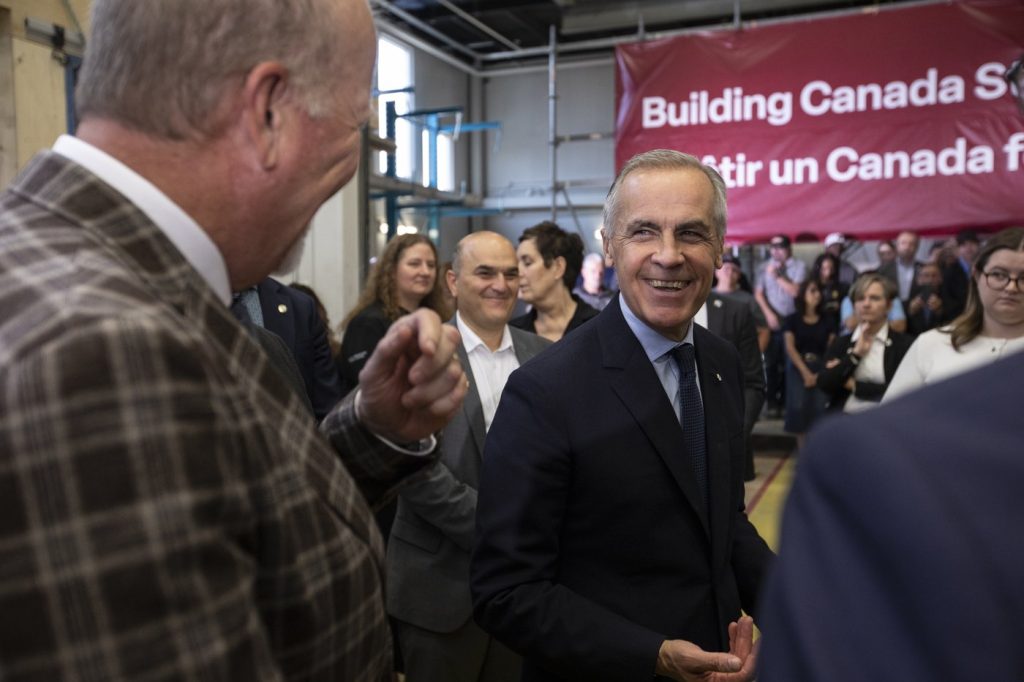CALGARY — Alberta Premier Danielle Smith expressed her support for Prime Minister Mark Carney’s recent announcement regarding the fast-tracking of major projects aimed at boosting Canada’s energy sector. She highlighted her optimism that many of the selected projects are resource-based and have the potential to generate significant royalties and tax revenue for the country. “This is going to be good for the country,” she stated during a press conference in Calgary.
On Thursday, Carney unveiled a list of seven additional energy and infrastructure projects recommended for expedited approval by the government’s major projects office. This comes after an initial announcement in September which included five projects. Among the newly added projects are a nickel mine in northern Ontario, a hydroelectric project in Iqaluit, and both a transmission line and a liquefied natural gas (LNG) project located in northwest British Columbia. Additionally, two mineral mines situated in Quebec and New Brunswick are also included in this updated list.
However, absent from this selection is a proposal for a bitumen pipeline that Smith and her government have been actively promoting. Smith’s office confirmed that negotiations with the federal government regarding the pipeline are still ongoing. In a statement released following Carney's announcement, she emphasized that they are working toward an agreement with Ottawa, which may involve the removal or modification of several regulations that are currently perceived as barriers to private investment in Alberta’s energy sector. Smith expressed her hope for the eventual approval of a bitumen pipeline aimed at Asian markets.
Smith mentioned that discussions are critical as they approach a conclusion, stating she expects to receive a response soon regarding whether Carney’s government will align with Alberta’s energy objectives or adhere to the regulations established under former Prime Minister Justin Trudeau’s administration. The Premier specified that she aimed to have an agreement finalized before the Canadian Football League Grey Cup game set for this weekend.
In response, Carney acknowledged that some issues remain to be resolved “over the coming weeks,” despite what he described as a “meeting of minds.” He affirmed the importance of the discussion for both Alberta and Canada overall, indicating a careful approach to ensure the process proceeds correctly.
When questioned about expectations for Smith regarding any potential agreement, Carney emphasized the necessity for Alberta to invest suitably in its oil and gas sector to position itself for the future of energy. He discussed the shift towards “low risk, low cost, and low carbon” energy, mentioning that Alberta should continue to decrease its emissions intensity, which he noted is already trending positively.
Additionally, Carney indicated the importance of improving Alberta’s carbon market and regulations for future investment certainty, although he did not disclose specific details on how this would be achieved.
British Columbia Premier David Eby, who has had prior disagreements with Smith over the proposed pipeline to the west coast, publicly expressed his frustration about the ongoing discussions. Eby remarked, “There is no route, there is no proponent, there is no project,” dismissing the initiative as merely a concept created by Alberta’s communication team. He further indicated skepticism about the project being funded solely by taxpayers to a substantial extent.
In a subsequent statement, Smith remarked that finding a company to lead the pipeline project would become more feasible once Alberta and Ottawa reach an agreement on a new regulatory framework. She maintained that the discussions revolve primarily around regulatory issues, emphasizing the urgency to move forward in this context. Despite her desire for a swift resolution, she conveyed that she was not overly concerned about meeting the Grey Cup deadline.
Smith articulated her belief in the necessity of collaboration, asserting, “I hope we can get to a point where, as the Prime Minister said, ‘pipelines are boring.’ I would love for pipelines to be so boring that they were never a political issue.”
To date, none of the projects that Carney has forwarded to the Major Projects Office have been designated as being in the national interest, which would grant them special treatment, including possible exemptions from certain environmental regulations to facilitate their progression. The Major Projects Office’s mandate is to evaluate the proposals brought to it and offer recommendations to the federal government, which retains the ultimate authority over national interest designations.












